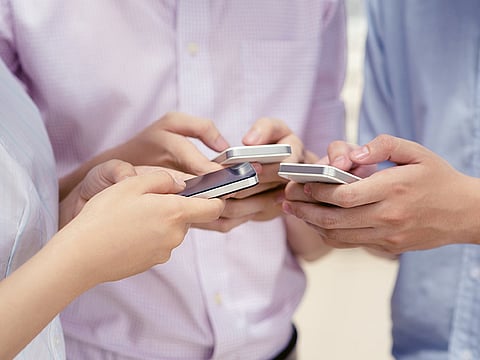Don’t let that smartphone control you
We risk devaluing our current situation, friends and family around us, for something going on somewhere else

One of my happiest memories of time spent with my recently-deceased grandfather was sitting with him watching YouTube, playing his favourite old Bollywood songs. He lived in India when he was very young and spent his youth infatuated with Bollywood. It was really surprising to both of us that all his favourite movies of more than half a century ago were online and could be watched with just a simple search. We built lasting memories together — he would just call me and tell me to play a song from a specific movie and a wonderful nostalgic smile would pop up under his wrinkles.
There is no denying it: Today, phones, and specifically smartphones, have become an inseparable part of all of us. From a three-year-old admiring the ABC alphabet melody on YouTube to the 80-year-old who is eager to receive pictures of his grandchildren, they have become an intrinsic part of our lives. The benefits of the handy, technologically advanced, portable smartphones are many — closing the gap of globalisation and bringing people together, breaking down cultural walls, expediting business solutions, making entertainment easily attainable and reducing the cost of communication, particularly in the developing world.
But the same things that make the smartphone advantageous also entail many disadvantages. ‘Digital dementia’, a new term formulated by German neuroscientist Manfred Spitzer, which explains that the overuse of digital technology is resulting in the breakdown of cognitive abilities in a way that is more commonly seen in people who have suffered a head injury or psychiatric illness. Moreover, back in 2013, a study conducted at the University of California, Los Angeles, revealed that young people are spending more than seven hours a day attached to their iPads, smartphones, computers and gaming consoles, which is proving to be very damaging to the development of young people’s brains. Efforts are now being made to counter the negativity of overuse. The United States government is taking overuse of phones very seriously and according to the government website www.distraction.gov, cellphone use can become as addictive as smoking, drinking and drug abuse, because the reward system in the brain is activated. This means cellphone use and texting can be as harmful as substance abuse.
Enduring concerns
Socially as well, phones have overtaken many aspects of our lives. How many of us have been in a concert, for example, and instead of living in the moment, all we see are LEDs and phone screens flashing all around us. Privacy and security remain enduring concerns, while our interpersonal relationships are descending into the use of texts, drained of genuine personal interaction and human emotion. According to a national survey conducted in the US in 2008, when the issue of phone overuse was starting to become an alarming one, nearly half (47 per cent) of US teens said their social lives would end or be worsened without their cellphones, and nearly six in 10 (57 per cent) credit their mobile devices with improving their lives. Whether we are dating someone, interviewing someone or just meeting someone for the first time, there is something irreplaceable about face-to-face interactions. We can catch the subtle tone in their voice, see their expression as it changes and can look them in the eye to find out if we trust them.
We must learn and understand when to use this gift and when to put it away. Eid is upon us and we should take advantage of this joyous occasion as an opportunity to develop better living habits. The phone should play a secondary role during Eid so that we can enjoy quality time with family. There will always be time to check updates on our phones, but we need to get our priorities right and not mix two independent activities.
I am sure the socialites with thousands, if not millions, of followers on Instagram will disagree. But the shame is not on them for sharing every small detail of their lives, the shame is on their followers who are addicted to knowing every minute detail of their lives. So am I saying we should destroy all smartphones and ridicule all the technological advances that we have made? Obviously not. But we should consider limiting their use. The idea of being present in the moment is disappearing. We risk devaluing our current situation, friends and family around us and our surroundings, for something going on somewhere else. Inevitably this begs the question: Do we want to continue to be humans or do we prefer transforming into emotionless beings?
Hatem Abdulhameed Hatem is a Bahrain-based writer.


